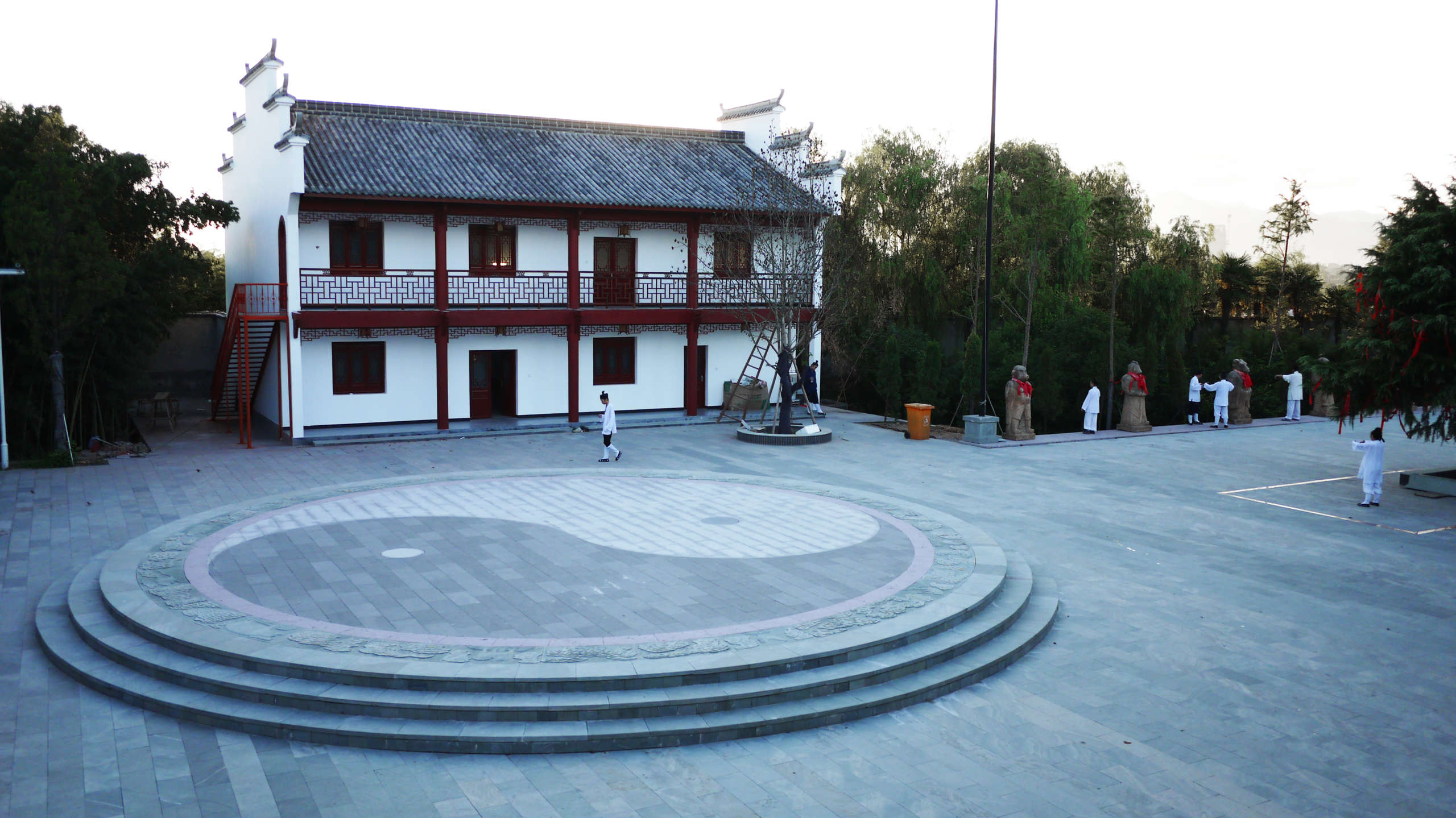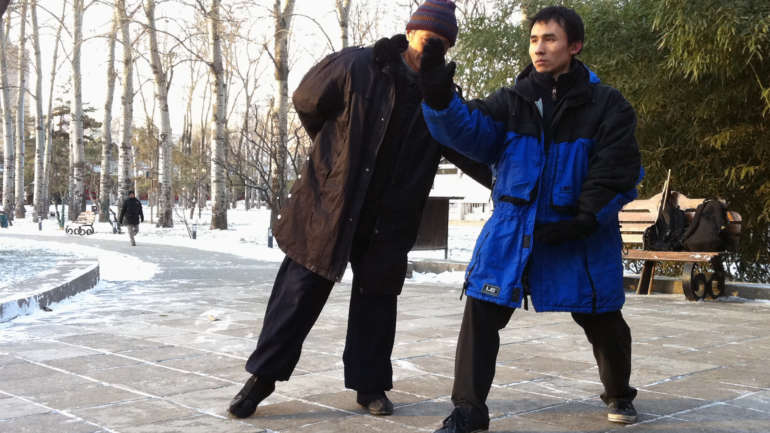Baguazhang translates to “Eight Trigrams Palm,” however this wasn’t the original name. At the beginning, this art was called “Zhuan Zhang,” which means “Turning Palms.” The development of Bagua was deeply affected by the new name it was given.
Many schools focused on the “Eight” in the name of the art. 8 mother postures, 8 turning palms, 8 animal styles, 8 palm changes, 8 applications…etc. More and more systems were developed to fit into a set of 8 movements.
This concept eventually shaped the development of what is generally called the “Mother Postures” or “Mother Palms.” Mother Palms are the set of movements being held during Circle Walking. In the early 80’s, researchers went across China to categorize Bagua and found out there were about 30 different variations in Mother Palms. However, most school will adhere to having 8 (again, to fit the name).
In terms of practice, it does not matter a whole lot which Mother Palms you choose as long as you are doing it correctly (structrually aligned). But generally, it is recommended you have at least 3 types of variations in your practice:
- A small frame posture
- A large frame posture
- A posture that twists your body towards the center of the circle
The most iconic Mother Palm is probably the Green Dragon Stretches Its Claws as shown below:

What is Circle Walk?
I think most people understand the importance of stances. On a basic level, most martial arts styles have a version of Horse Stance.
The purpose of a stance is to find structural alignment in a static posture. Do you have a strong and stable structure to generate force from. Do you have a strong and stable structure to take on incoming force.
Circle Walking takes it to the next level. In simple terms, Circle Walking is to find structural alignment in a moving posture. Experienced martial arts can hit hard and have strong support in a static posture. Can they do the same while moving? Circle Walking addresses that.
How Long Should I Walk?
The irresponsible answer is: “As much as you can.” Or, “Whenever you have time.” Or, “Depends on your schedule.”
There is actually a “correct” and very specific answer to this question, just as there is a correct answer to how long should you cook a steak? Or how long should you boil water?
When I was taught, the concept was being described to me as boiling water. Once the water is boiled, you can make tea, make coffee, or make soup. But before the water is boiled, you can’t really do anything with it. Circle Walking is boiling that water for your body. The purpose is to prep your body to have the neccesary raw ingredients so you can make a dish out of it. It takes 40 minutes to boil that water.

In terms of traditional training, it doesn’t matter if you circle walk every single day for 20 minutes. Because the water never got to the boiling point. If you want the full benefits of Circle Walking, it needs to be 40-60 minutes non-stop, per session.
To develop this core power, the old guidelines are to train Circle Walking for 3 months. I will talk about the significance of 100 Day training in another post.
Of course, after 3 months you can always walk more and continue to reap the benefits. But for a practitioner, 3 months everyday at 40-60 minutes non-stop per session is kind of the “minimum threshold” to be a qualified beginner in Bagua.
In reality, many so-called masters and long term practitioners of Bagua have never even met this “minimum threshold.” And it shows.
Here’s my Circle Walking Routine for anybody that wants a referrence. It’s not the only way to do it, but it’s one way to do it. If you have your routine down pat, go for it. If not, you can referrence mine for free:
- 12 Mother Postures
- 8 circles per posture (12 circles if I feel good, which brings total training time to about 1 hour)
- Both directions
- 16 steps per circle
(usually the guidance is 12 – 16 steps for circle walking purposes) - Approximately 40-45 minutes per session
Throwing out something controversial, and many people can hate on me. But I’m throwing it out there anyway. You can spend years to learn 1000 techniques, 1000 palm changes, 1000 applications, but none of them will “work” in real life. Or you can dedicate some time upfront, to build this motor, this foundation, this power, so you can make everything you learn work.
When people ask me the difference between the 3 internal martial arts styles (Bagua, Taichi, Xingyi), I tell them:
- Bagua is a fan
- Xingyi is a drill
- Taichi is a grinder
They have the same base motor. Train that motor.
Circle Walking is Bagua’s way of training that motor.
Winter is a great time to train Circle Walking, I mentioned it in my last post: Demystifying Bagua Circle Walking
I invite you to join my 100-Day Circle Walking Challenge over the next 4 months.
Let’s boil that water together.

